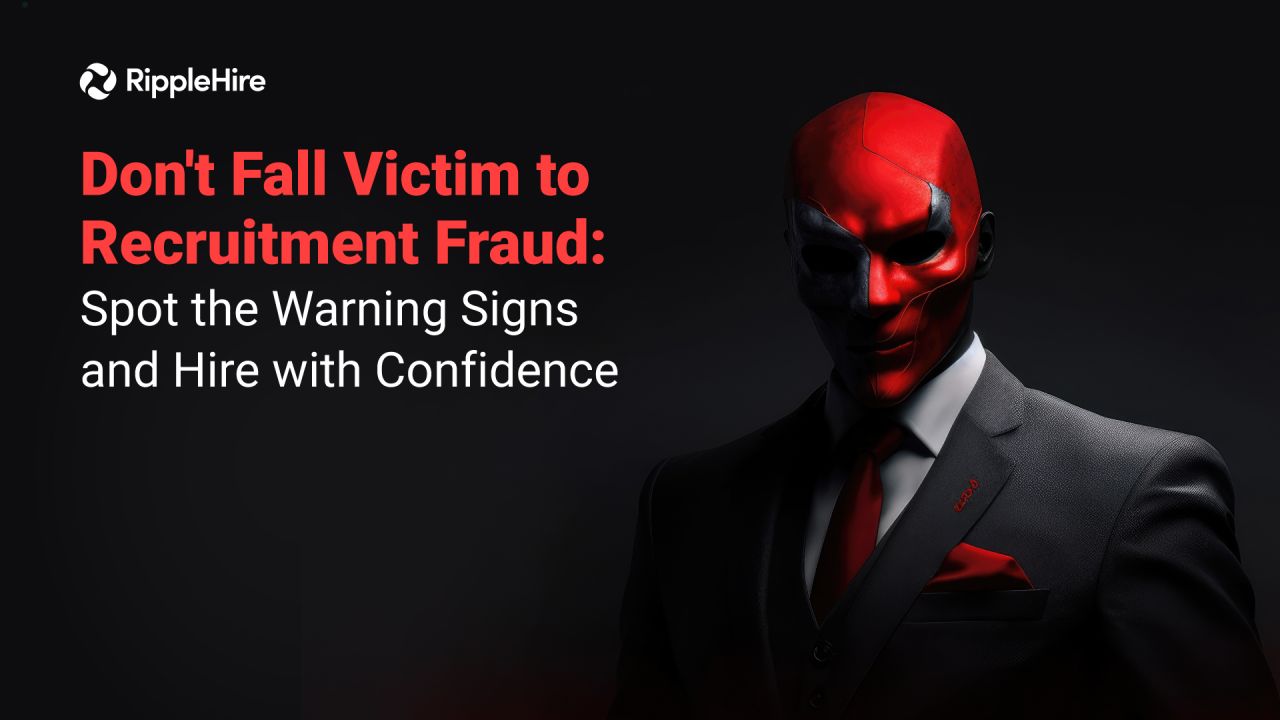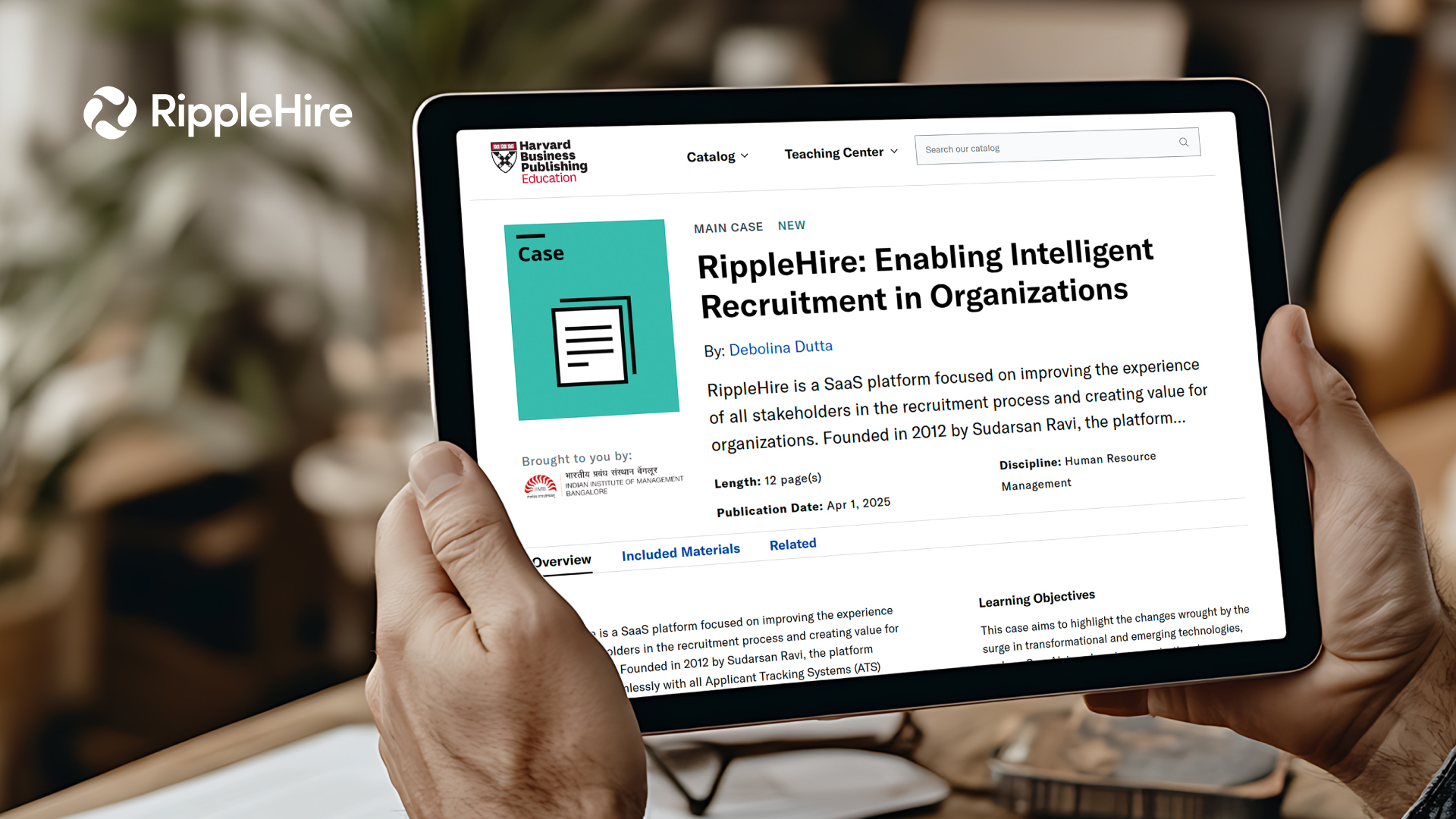Recruitment fraud is a growing problem that can have serious consequences for companies. Hiring a fraudulent candidate can lead to financial losses, reputational damage, legal issues, and disruption to business operations. Employers must identify red flags early in the recruitment process to avoid falling victim to deceptive applicants. In this post, we’ll cover some key warning signs to watch out for and how to prevent fraud from happening.
Risks associated with fraudulent candidates
Hiring fraudulent candidates poses significant risks to organizations, making it a serious issue that requires proactive attention. These risks can have far-reaching consequences for a company’s operations, reputation, and bottom line. Let’s explore the major risks associated with fraudulent candidates and why this issue is so critical.
1) Poor job performance and productivity losses: When candidates misrepresent their qualifications or experience, they may lack the necessary skills to perform their job duties effectively. This can lead to subpar work quality, missed deadlines, and overall reduced productivity. As a result, the company may suffer from decreased output, lost business opportunities, and dissatisfied clients or customers. The time and resources invested in hiring and training these unqualified candidates are essentially wasted.
2) Legal and compliance issues: Hiring fraudulent candidates can expose companies to various legal and compliance risks. For example, if a candidate falsely claims to have a required professional license or certification and then makes mistakes on the job due to lack of proper qualifications, the company may face legal consequences. Similarly, if a candidate misrepresents their eligibility to work in the country and the company hires them without proper verification, the company could face fines or penalties for non-compliance with immigration laws.
3) Reputational damage: Fraudulent candidates can also harm a company’s reputation. If an employee is discovered to have misrepresented their background or engaged in unethical behavior related to their deception, it can tarnish the company’s image. This is particularly true for high-profile positions or cases that attract media attention. Reputational damage can lead to lost business, decreased customer trust, and difficulty attracting top talent in the future.
4) Financial losses: The financial impact of hiring fraudulent candidates can be significant. Companies invest substantial resources in the hiring process, including advertising, background checks, onboarding, and training. If a fraudulent candidate is hired and then quickly leaves or is terminated due to their deception, the company loses all those investments. Furthermore, if the fraudulent candidate’s actions lead to legal issues, lost business, or reputational harm, the financial consequences can be even more severe.
5) Team morale and trust issues: Discovering that a colleague has been dishonest about their background can erode trust and morale within a team. Other employees may feel resentful about picking up the slack for an under qualified coworker, or they may question the company’s hiring practices. If the deception is widespread or goes unaddressed, it can create a culture of mistrust and skepticism that undermines employee engagement and collaboration.
6) Opportunity costs: Every position filled by a fraudulent candidate represents a lost opportunity to hire a truly qualified and honest employee who could contribute positively to the organization. The time and resources spent dealing with the consequences of a bad hire could have been invested in advancing business goals and initiatives. In this sense, fraudulent candidates not only introduce risks but also hinder a company’s potential for growth and success.
Given the severity and scope of these risks, it’s clear that hiring fraudulent candidates is a significant problem that demands a proactive and vigilant approach from employers. By implementing robust screening processes, verifying candidate information, and staying alert to potential red flags, companies can mitigate these risks and protect their interests.
Different forms of frauds that candidates commit
Fraudulent candidates are job applicants who intentionally misrepresent their qualifications, experience, or background to secure a position they are not honestly qualified for. This deception can take various forms:
Resume fraud
Resume fraud occurs when candidates falsify or exaggerate information on their resumes to appear more qualified for a position. This can include inflating job titles to suggest a higher level of responsibility, embellishing job duties to claim experience they don’t have, or fabricating accomplishments to impress hiring managers. Some candidates may also invent fake employers or stretch employment dates to hide gaps in their work history. Resume fraud misleads employers about the candidate’s true capabilities and experience.
Educational dishonesty
Educational dishonesty involves candidates misrepresenting their academic background. This can take the form of claiming degrees from diploma mills or unaccredited institutions that require little to no academic work. Candidates may also lie about completing a degree they didn’t finish, inflate their grades or honors, or misrepresent their field of study. Educational dishonesty gives employers a false impression of the candidate’s knowledge and qualifications.
Credential fraud
Credential fraud happens when candidates provide fake or forged professional licenses, certifications, or other credentials to meet job requirements or enhance their credibility. For example, a candidate might present a fake license for a position that requires a specific professional certification. Candidates may also claim membership in professional organizations they don’t belong to. Credential fraud misleads employers about the candidate’s qualifications and can even put the company at risk of legal issues if the position requires genuine credentials.
Identity fraud
Identity fraud in the hiring process involves candidates using a false identity or someone else’s identity to conceal parts of their background that might disqualify them. For example, a candidate with a criminal history might use a fake identity to avoid detection in a background check. Candidates may also provide false personal information, such as a fake address or social security number. Identity fraud prevents employers from properly vetting candidates and can introduce serious security risks.
Reference fraud
Reference fraud occurs when candidates provide fake or misleading references to back up their false claims. They may list references who are actually friends or family members posing as professional contacts, or they might pressure former colleagues to give inflated or inaccurate recommendations. Some candidates may even forge reference letters or testimonials. Reference fraud makes it harder for employers to get an honest assessment of the candidate’s past performance and character.
Misrepresentation of eligibility
Misrepresentation of eligibility happens when candidates lie about their legal right to work in the country or their criminal background. For example, a candidate might falsely claim to have a valid work visa or hide a past felony conviction that would disqualify them from the position. Hiring candidates who misrepresent their eligibility can put the company at risk of legal penalties and damage its reputation.
How to catch fraudulent candidates from entering your organization
1) Resume fraud
To detect resume fraud, employers should scrutinize resumes for inconsistencies, gaps, or vague descriptions. Verifying employment history through reference checks and online research is crucial.
1) Use resume verification services that check for discrepancies and exaggerations
2) Conduct thorough interviews that probe into the candidate’s claimed experience and skills
3) Implementing skill assessments or work simulations can also help validate candidate abilities and ensure they possess the necessary qualifications for the role.
2) Educational dishonesty
Educational dishonesty can be prevented by requiring official transcripts sent directly from the educational institution and verifying degrees and certifications through reliable services.
1) Check for the accreditation status of claimed educational institutions
2) Ask detailed questions about the candidate’s educational experience during interviews
These steps help employers confirm the authenticity of the candidate’s educational background and detect any misrepresentations.
3) Credential fraud
To prevent credential fraud, employers should require candidates to provide original or certified copies of licenses and certifications. Verifying these credentials with the issuing organizations or through online verification systems is essential.
1) Check for disciplinary actions or suspensions related to professional licenses
2) Partner with background screening providers that specialize in credential verification
By taking these measures, companies can ensure that candidates possess the genuine qualifications required for the position and avoid hiring those with fraudulent credentials.
4) Identity fraud
Conducting comprehensive background checks that include identity verification is a key step in preventing identity fraud. Employers can use services like E-Verify to confirm the candidate’s eligibility to work in the country.
1) Require multiple forms of government-issued identification and verify their authenticity
2) Implement biometric screening, such as fingerprint or facial recognition technology, for high-security positions
These measures help establish the candidate’s true identity and mitigate the risk of hiring individuals who are misrepresenting themselves.
5) Reference fraud
To detect reference fraud, employers should insist on professional references from direct supervisors or managers and verify the legitimacy of reference contacts through company directories or online research.
1) Ask open-ended questions that elicit specific examples of the candidate’s performance and character
2) Be cautious of overly enthusiastic or vague references that lack concrete details
Using reference-checking services that provide verified and detailed feedback can also help uncover any attempts at reference fraud.
In addition to these specific strategies, fostering a culture of integrity and accountability that encourages reporting of suspected fraud is essential. Regularly reviewing and updating screening strategies helps companies stay ahead of evolving deception tactics. By implementing a comprehensive approach that combines thorough investigation, verified information, and advanced screening tools and technology, employers can significantly reduce the risk of falling victim to candidate fraud and maintain a trustworthy and qualified workforce.
Safeguard your hiring process with RippleHire
RippleHire’s AI-powered fraud detection system combines advanced technology with human expertise to provide a comprehensive solution for safeguarding your hiring process. From resume parsing and database checks to interview validation and blacklist screening, RippleHire’s multi-layered approach ensures that no suspicious activity goes unnoticed.
With RippleHire, you can:
1) Flag fake company and education details using database searches
2) Validate candidate photos during interviews to prevent impersonation
3) Conduct rehire checks to identify past employment discrepancies
4) Screen for blacklisted candidates to maintain a high-quality talent pool
5) Protect your offer letters with visual experiences that deter scammer agencies
Don’t let fraudsters, imposters, and scammers jeopardize your organization’s success. Book a demo with RippleHire today and discover how our cutting-edge technology and human expertise can help you combat recruitment fraud effectively, saving you time, money, and reputational risks in the long run.






